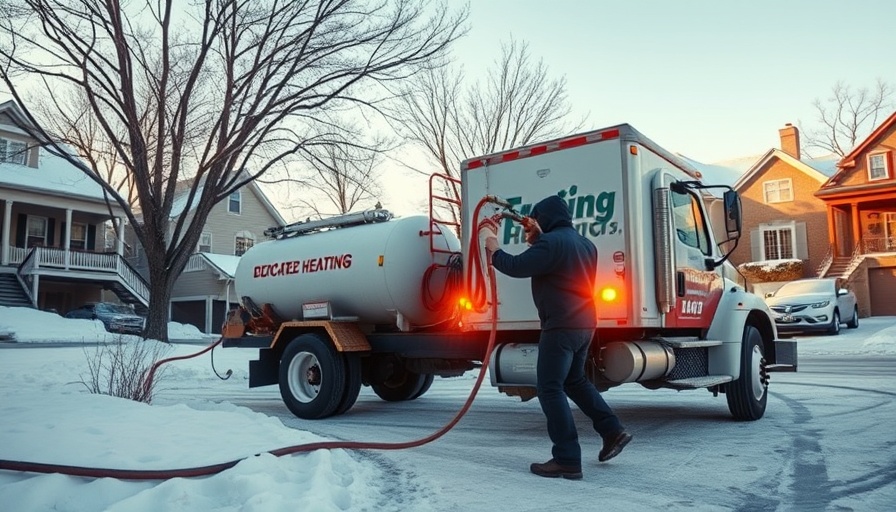
The Unanticipated Layoffs: Impact on Low-Income Heating Assistance
The recent firing of staff from the Low Income Home Energy Assistance Program (LIHEAP) marks a significant shift in federal support for low-income families. As the Trump administration laid off nearly two dozen employees responsible for overseeing this $4.1 billion program, state officials now find themselves in limbo regarding the future of vital heating subsidies.
Why This Matters: The Stakes for Families
The LIHEAP program is critical for approximately 6.2 million households that rely on government assistance to cover heating and cooling expenses. With winter still impacting many regions, especially northern states like Minnesota, the abrupt termination of staff has left many families anxious about their ability to secure warmth in the chilly months. Predicted funding shortfalls for summer cooling assistance emphasize the program's year-round importance.
The Fear of Funding Gaps: States on Edge
As state officials learn more about the agency's reorganization, uncertainty reigns. At stake are millions of dollars in federal funding that states depend on to implement programs during extreme weather conditions. Peter Hadler from Connecticut expressed this concern, noting his state is still expecting an $8 million payment to help those in need. Without these funds, several states may find their ability to provide essential services significantly diminished.
The Political Landscape: A Bipartisan Outcry
The layoffs garnered immediate attention from lawmakers across the aisle. A coalition of 13 U.S. senators released a letter to Health Secretary Robert F. Kennedy Jr., urging him to reconsider these drastic cuts that threaten vulnerable populations. This unity among senators—two of whom are Republicans—highlights the universal agreement on the necessity of LIHEAP. The senators warned that without operational staff, LIHEAP would not be able to fulfill its role as a 'crucial lifeline.' This bipartisan push illustrates the broader recognition among legislators about the significance of social safety nets.
Recalibrating for Better Outcomes: HHS's Position
In response to concerns, HHS spokesperson Emily Hilliard assured that the department would comply with necessary statutory requirements while asserting that the reorganization could potentially enhance program execution. However, this promise has fallen flat for many who are struggling with the immediate implications of the layoffs. The stark reality is that many states will have to scale back their upcoming cooling programs due to the uncertainty surrounding remaining federal assistance.
A Historical Perspective: Role of LIHEAP in Community Welfare
Looking back, LIHEAP has played a pivotal role in ensuring that low-income households are not left to brave the elements alone. Since its inception, the program has proven beneficial in reducing health risks associated with extreme weather, such as hypothermia in winter months and heat-related illnesses in summer. The necessity of such programs amplifies the implications of the recent staffing decisions, raising questions about the federal commitment to those most in need.
Future Predictions: Possible Outcomes and Solutions
As states navigate the aftermath of these layoffs, there’s a growing consensus that civic engagement is vital. Community members must advocate for sustained funding and enhanced programs aimed at vulnerable populations. Local governments may also need to innovate and perhaps seek alternative funding sources, including public-private partnerships, to bridge potential gaps caused by federal changes.
Call to Action: Get Involved!
It is imperative that residents of Davenport, Polk County, and Central Florida stay informed and engage with local advocacy groups that are working to ensure that energy assistance remains available. Consider reaching out to your local representatives to express your support for LIHEAP and similar programs that safeguard our community’s welfare. More than ever, communities need to come together to demand the resources that will keep families safe and warm.
 Add Row
Add Row  Add
Add 






Write A Comment